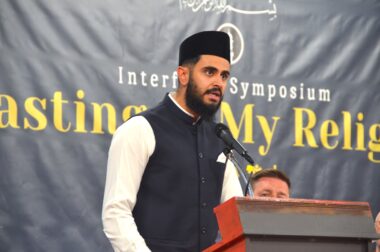RACV has revealed the top ten most common call outs for tradies with blocked pipes or toilets topping the list. RACV Emergency Home Assist (EHA) specialists had almost 10,000 callouts for blocked pipes or toilets in the 2024 financial year – equalling 18 per cent of total callouts.
RACV Head of Trades Kieran Davies emphasised the importance of regular home maintenance and prompt professional assistance in emergencies.
"While some issues can be prevented with routine care, others occur unexpectedly and having emergency contacts like RACV Emergency Home Assist can help address these situations promptly, minimising damage and ensuring safety," Mr Davies said.
“A blocked toilet, pipe or drain prevents smooth water flow, which can cause overflow or backup into the nearest outlet and obviously this is not something you want or are able to tackle yourself.
“Our specialists can assess the situation and fix most blockages on the spot with hand tools. If cameras and waterjets are required, they can provide a quote.”
To help avoid blockages, you should never flush things like tissues, paper towel, wet wipes, tampons or menstrual products, nappies, dishcloths or sponges, ear cleaners or cotton pads, dental floss or hair.
RACV’s top 10 emergency trade callouts
- Blocked pipes or toilets: Topping the list with 9,398 emergency callouts, representing 18 per cent of total emergency call outs.
- Burst pipes: The second most frequent issue, with 6,694 emergency callouts.
- Power failures: Resulting in 6,562 emergency callouts (excludes area-wide blackouts).
- Broken heating/cooling systems: Accounting for 5,812 emergency callouts.
- Burst taps or showerheads: Causing 5,718 emergency callouts.
- Broken hot water systems: Leading to 5,542 emergency callouts.
- Internal leaks: Requiring 5,295 emergency callouts.
- Lockouts: Affecting 4,375 Victorian households.
- Broken garage doors: Resulting in 1,240 emergency callouts.
- Gas leaks: While less frequent at 859 instances, remain a serious safety concern.
RACV encourages homeowners to familiarise themselves with preventive measures and basic troubleshooting for common household issues. For situations requiring professional intervention, RACV Emergency Home Assist provides 24/7 emergency trades assistance every day of the year.
For more information on home emergency preparedness or to learn about RACV's Emergency Home Assist plans, visit racv.com.au or call 13 46 63.
ENDS-
Further information
Since 1903, RACV has been one of Australia’s most trusted brands and is the largest member organisation in Victoria.
RACV is proud to provide exceptional experiences for our members and customers through a range of products and services across motoring and mobility, home, energy and leisure. These include emergency roadside assistance, motor insurance, home insurance, home trades and an increasing range of options in the cleaner energy space, such as RACV Solar. We have 10 clubs and resorts across Australia and offer a range of domestic and international holiday packages, tours and cruises from our trusted travel partners.
The information provided is general advice only. Before making any decisions please consider your own circumstances and the Product Disclosure Statement and Target Market Determinations. For copies, visit racv.com.au. As distributor, RACV Insurance Services Pty Ltd AFS Licence No. 230039 receives commission for each policy sold or renewed. Products issued by Insurance Manufacturers of Australia Pty Ltd ABN 93 004 208 084 AFS Licence No. 227678.
RACV Trades is a trading name of RACV's trade partner, Club Home Response Pty Ltd (Victorian registered domestic building practitioner number CDB U 100178). All works are performed or arranged by Club Home Response Pty Ltd. trading as RACV Trades.
Contact details:
RACV Media
Phone: 0417 041 398
Email: [email protected]

